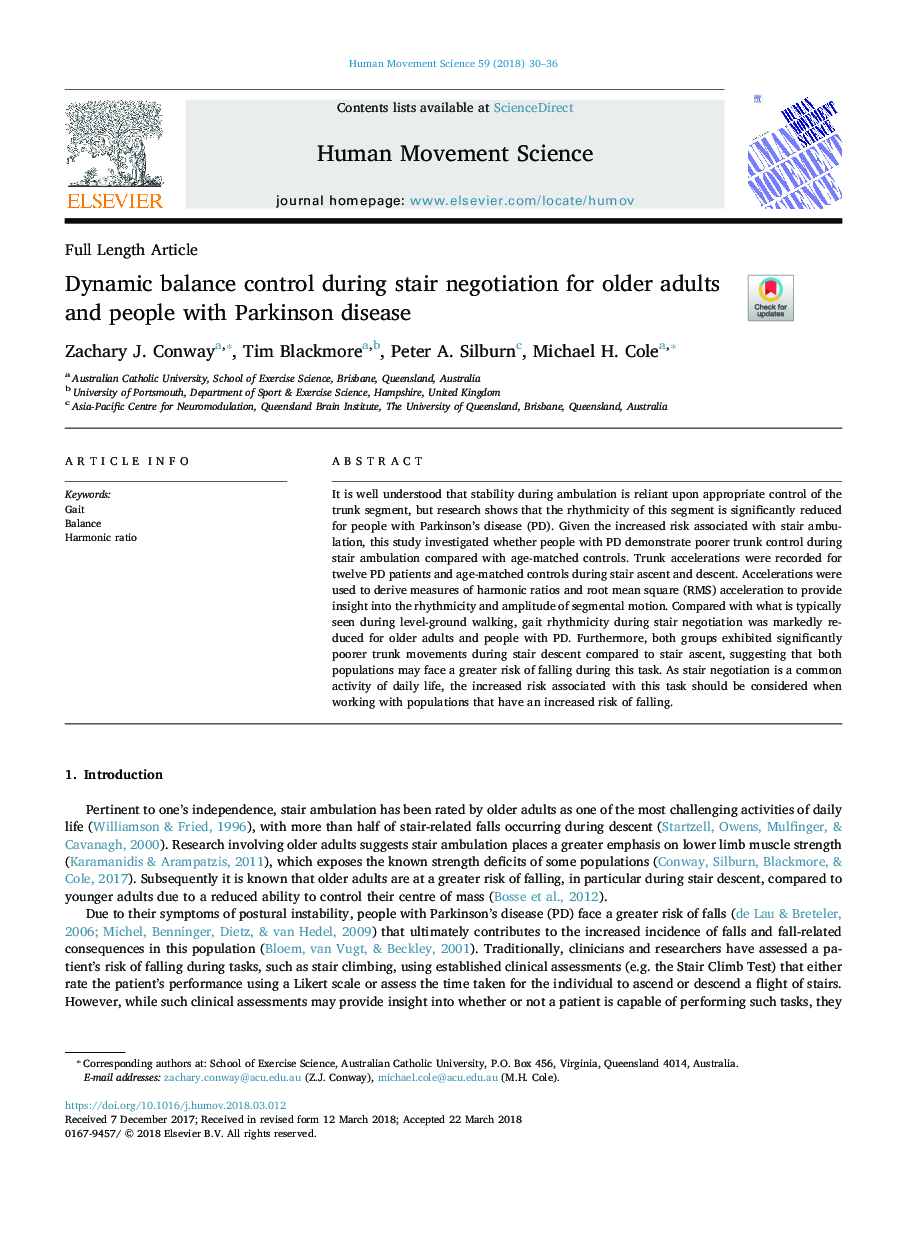| Article ID | Journal | Published Year | Pages | File Type |
|---|---|---|---|---|
| 7290879 | Human Movement Science | 2018 | 7 Pages |
Abstract
It is well understood that stability during ambulation is reliant upon appropriate control of the trunk segment, but research shows that the rhythmicity of this segment is significantly reduced for people with Parkinson's disease (PD). Given the increased risk associated with stair ambulation, this study investigated whether people with PD demonstrate poorer trunk control during stair ambulation compared with age-matched controls. Trunk accelerations were recorded for twelve PD patients and age-matched controls during stair ascent and descent. Accelerations were used to derive measures of harmonic ratios and root mean square (RMS) acceleration to provide insight into the rhythmicity and amplitude of segmental motion. Compared with what is typically seen during level-ground walking, gait rhythmicity during stair negotiation was markedly reduced for older adults and people with PD. Furthermore, both groups exhibited significantly poorer trunk movements during stair descent compared to stair ascent, suggesting that both populations may face a greater risk of falling during this task. As stair negotiation is a common activity of daily life, the increased risk associated with this task should be considered when working with populations that have an increased risk of falling.
Keywords
Related Topics
Life Sciences
Neuroscience
Cognitive Neuroscience
Authors
Zachary J. Conway, Tim Blackmore, Peter A. Silburn, Michael H. Cole,
